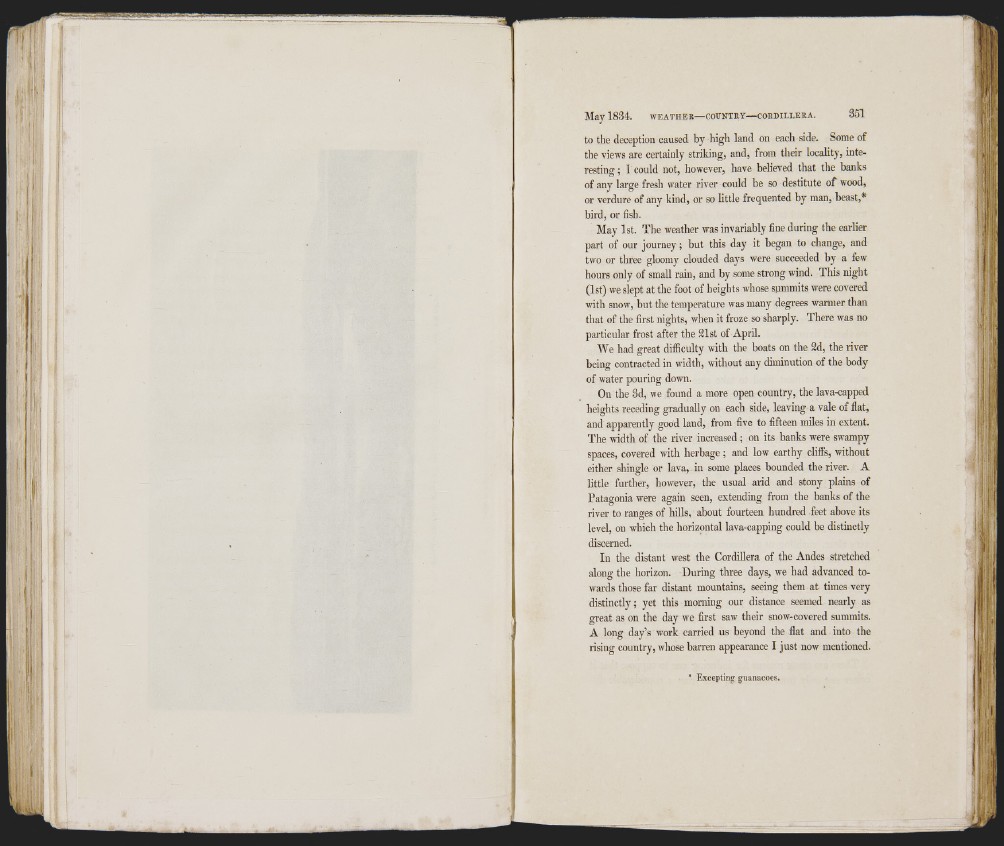
to the deception caused by high land on each side. Some of
the views are certainly striking, and, from their locality, interesting
; I could not, however, have believed that the banks
of any large fresh water river could be so destitute of wood,
or verdure of any kind, or so little frequented by man, beast,*
bird, or fish.
May 1st. The weather was invariably fine during the earlier
part of our journey ; but this day it began to change, and
two or three gloomy clouded days were succeeded by a few
hours only of small rain, and by some strong wind. This night
(1st) we slept at the foot of heights whose summits were covered
with snow, but the temperature was many degrees warmer than
that of the first nights, when it froze so sharply. There was no
particular frost after the 21st of April.
We had great difficulty with the boats on the 2d, the river
being contracted in width, without any diminution of the body
of water pouring down.
On the 3d, we found a more open country, the lava-capped
heights receding gradually on each side, leaving a vale of flat,
and apparently good land, from five to fifteen miles in extent.
The width of the river increased; on its banks were swampy
spaces, covered with herbage ; and low earthy cliffs, without
either shingle or lava, in some places bounded the river. A
little further, however, the usual arid and stony plains of
Patagonia were again seen, extending from the banks of the
river to ranges of hills, about fourteen hundred feet above its
level, on which the horizontal lava-capping could be distinctly
discerned.
In the distant west the Cordillera of the Andes stretched
along the horizon. During three days, we had advanced to-
wai-ds those far distant mountains, seeing them at times very
distinctly ; yet this morning our distance seemed nearly as
great as on the day we first saw their snow-covered summits.
A long day’s work carried us beyond the flat and into the
rising country, whose barren appearance I just now mentioned. 1'i
* Excepting guanacoes.